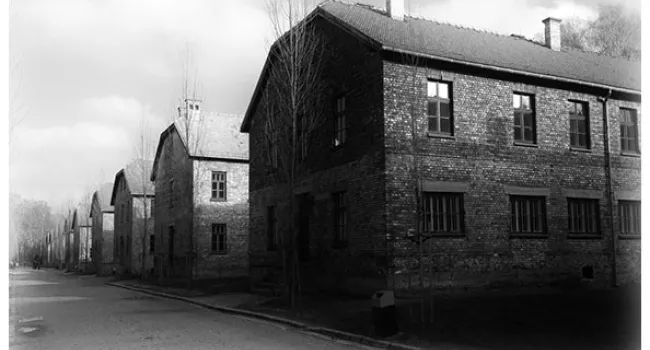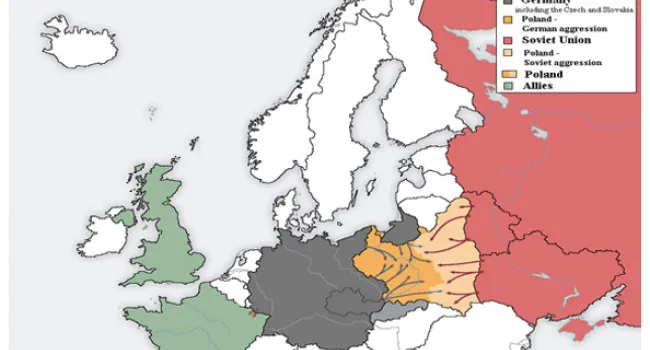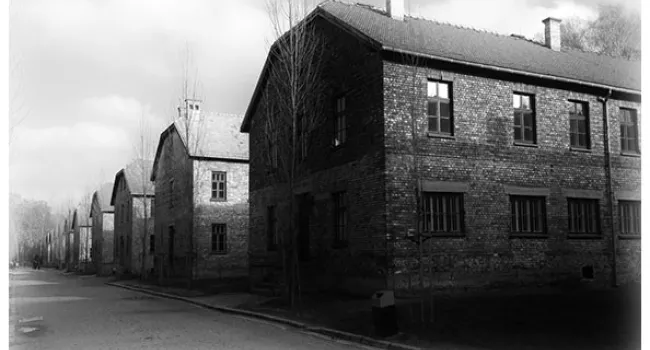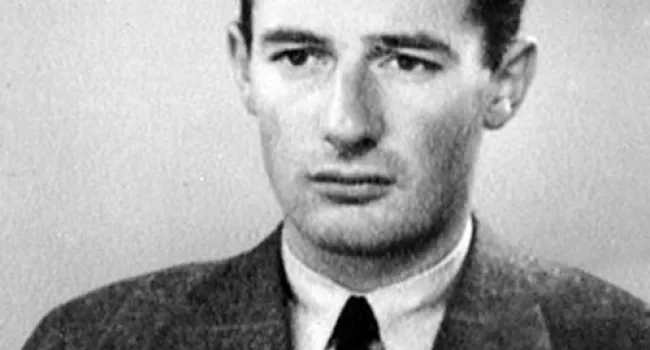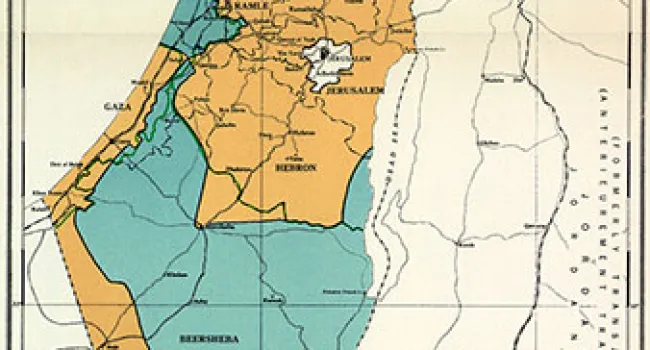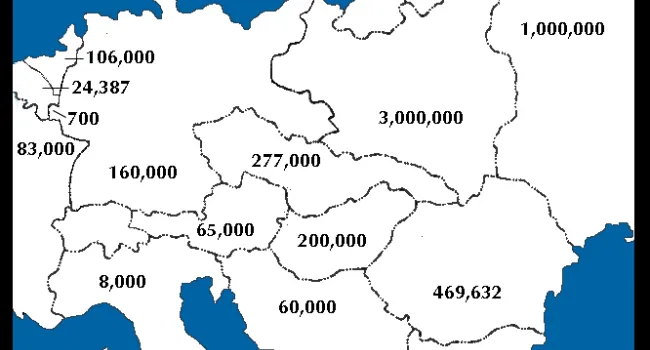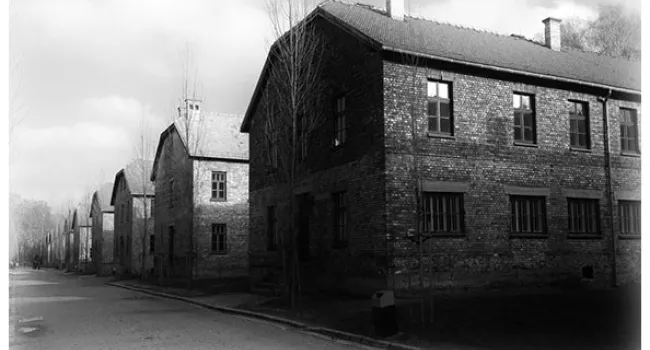In general the art of all great popular leaders at all times consists in not scattering the attention of a people but rather in concentrating it always on one single opponent. —from Mein Kampf by Adolf Hitler
A little lie may not be believed by all, but a big lie, if repeated with sufficient frequency, will eventually take deep root in the minds of the uninformed masses.—Paul Joseph Goebbels, Nazi Chief of Propaganda
In the century and a half before 1933, the people of Germany created more enduring literature and music, more profound theology and philosophy, and more advanced science and scholarship than did the people of any other country in the world. Germans were highly cultured. Their universities were the most respected in Europe. And yet it was in this country that Nazism developed.
Many factors played a part in Adolf Hitler's rise to power. Hitler's arresting personality and his skills as a public speaker and a propagandist contributed to his political success. His ability to attract followers can also be attributed to the bitterness many Germans felt following their country's defeat in World War I, resentment of the terms of the Versailles Treaty, weaknesses of the Weimar Republic, the Depression, and extreme nationalism of the German people.
Weimar Republic Blamed for Germany's Defeat
In 1919 after defeat in World War I, Germany set up a republic. The Weimar Republic was created during the period of general exhaustion and shock that followed the war. The Kaiser, Germany's ruler, fled to Holland and although the military had lost the war, the new government was blamed for the defeat.
Germans were not prepared for a democratic government. The country had always known authoritarian leaders and had been ruled by an emperor since 1871. Most Germans saw the Weimar Republic as a interim government. When Germany held elections, it became a "Republic without Republicans." It did not have an elected majority and was disliked by all sides.
Resentment of the Versailles Treaty
At the end of World War I, the Weimar government had been forced to sign the Treaty of Versailles. The treaty fostered feelings of injustice and made many Germans want revenge. Article 231, the war guilt clause, declared that Germany was the principal aggressor in the war and declared it responsible for the destruction. Germany was forced to give up land and pay massive reparations.
Following Germany's defeat, the German mark became almost worthless. In 1914 $1.00 was equal to 4 marks; in 1921 $1.00 was equal to 191 marks; by 1923 $1.00 was equal to 17,792 marks; and by the latter 1920s $1.00 was worth 4,200,000,000,000 marks. Hitler benefitted from the country's economic problems. Economic uncertainty offered a rich soil for the seeds of fascism.
Hitler's Early Years
Adolf Hitler was born on April 20, 1889, in Austria. He was the fourth of six children. Hitler's stepfather, a custom's official, died when Adolf was 14. Hitler's first years at school were successful until he entered a technical school at age 11. There, his grades became so poor that he left school at 16.
After his mother's death in 1907, Hitler moved to Vienna, where he lived for seven years. While there he applied for admission to the Academy of Art, but was rejected for lack of talent. In 1913 Hitler moved to Munich, Germany and joined the German army. In World War I, he took part in heavy fighting. He was wounded in 1916 and gassed in 1918. He was recovering in a hospital when the Armistice was signed on November 11, 1918. From Hitler's wartime experiences came the central ideas he pursued later: his belief in the heroic virtues of war, his insistence that the German army had never been defeated, and his belief in the inequality of races and individuals.
Nazi Party Formed
In 1919, at age 30, Hitler returned to Munich, where former soldiers embittered by their experiences had formed associations. Many of these groups blamed Germany's defeat on Jews who had stabbed the army in the back. Hitler joined the German Workers Party and within a year's time, had transformed it into the National Socialist German Workers' Party, or Nazi Party. By 1922, Hitler had become a well-known figure around Munich. He rented beer halls and hammered away at his basic themes: hatred of Communists and Jews, the injustice of the Treaty of Versailles, and the betrayal of the German army by Jews and pacifists.
On November 8, 1923, Hitler and his followers attempted a takeover of the government in Munich. The failure of this attempt resulted in a five-year jail sentence for Hitler. He served only nine months of his sentence, during which time he wrote the book Mein Kampf (My Struggle). This book would become the bible of the Nazi movement. Hitler made no secret of his program; it was clearly spelled out in Mein Kampf. In the book Hitler announces his intention to manipulate the masses by means of propaganda, forecasts a worldwide battle for racial superiority, and promises to free Germany from the limitations imposed by the Treaty of Versailles.
Released from prison in 1924, Hitler realized the Nazis must come to power legally. "Democracy must be defeated with the weapons of democracy," he said. His task was to reorganize his outlawed party and work toward his goals. The popularity of Hitler's racist ideas coupled with his magnificent gift of oratory united the disillusioned of every class: the bankrupt businessman, the army officer who couldn't adjust to civilian life, the unemployed worker or clerk, and the university student who had failed his exams.
Professionals and Workers Attracted to Nazi Party
Hitler's ideas found support among all classes from lawyers, doctors, and scientists to factory workers. However, his strongest supporters were members of the lower middle class, small shopkeepers, clerks and tradesmen. On average, young Protestant men favored the party, while women, older people, and Catholics continued to oppose it.
Hitler offered something for everyone: the glories of Germany would return; war is a normal state of life; the common enemy of the German people is the Jew; the salvation of the world depends on the German race. Hitler's racist appeals attracted anti-Semites, but most Germans were more attracted by other aspects of his program. His followers believed his promises and rallied at Nuremberg to follow the Fuhrer—the leader.
Depression Brings New Supporters
His chance came during the Depression years. After 1929, many people blamed the Weimar government for the country's economic problems. By the early 1930s Germany was in a desperate state. Six million people were out of work. Hitler alone spoke of recovery.
Hitler Appointed Chancellor
The Nazi party surprised observers with its success in the parliamentary elections of 1930 by winning 107 seats in the Reichstag, or parliament. By July 1932 the Nazis had gained control of 230 seats and had become the strongest single party. In January 1933, an aging President Paul von Hindenburg was persuaded to appoint Hitler Chancellor of the Reich. Hitler called a new election for March 1933. The Nazi-controlled Reichstag then passed the Emergency Decree. All civil rights, free speech, freedom of the press, the right to assemble, the privacy of the mails, were suspended. All open opposition came to an end.
Until the election, Hitler used the power of emergency decrees to rule. Newspaper offices and radio stations were wrecked. When an arsonist set fire to the Reichstag building, Hitler blamed the blaze on the Communists.
Civil Rights Suspended by Enabling Act
On the first day the new Reichstag met, the Nazis helped push through the Enabling Act. This act provided legal backing for the Nazi dictatorship. No charges had to be filed to lock people up. Warrants did not have to be issued for arrests. "Enemies of the people and the state" were sent to concentration camps. The Reichstag adjourned, never again to have an effective voice in the affairs of Germany during Hitler's rule
Third Reich Comes to Power
When Hindenburg died in August 1934, Hitler saw his chance to consolidate his power. Hitler, with a vote of 90 percent, united the offices of President and Chancellor to become the Supreme Head of State and Commander-in-Chief of the Armed Forces. The democratic state was dead. Hitler's Third Reich had come to power.
The Adolf Hitler photo is licensed under the Creative Commons Attribution-Share Alike 3.0 Germany license.
Attribution: Bundesarchiv, Bild 146-1990-048-29A / CC-BY-SA 3.0
Standards
- 5.3 Demonstrate an understanding of the economic, political, and social effects of World War II, the Holocaust, and their aftermath (i.e., 1930–1950) on the United States and South Carolina.
- 6.5.CE Explain the impact of nationalism on global conflicts and genocides in the 20th and 21st centuries.
- This indicator is intended to encourage inquiry into the significant causes of World War I and the impacts of the Treaty of Versailles, including its failure to prevent future global conflicts.
